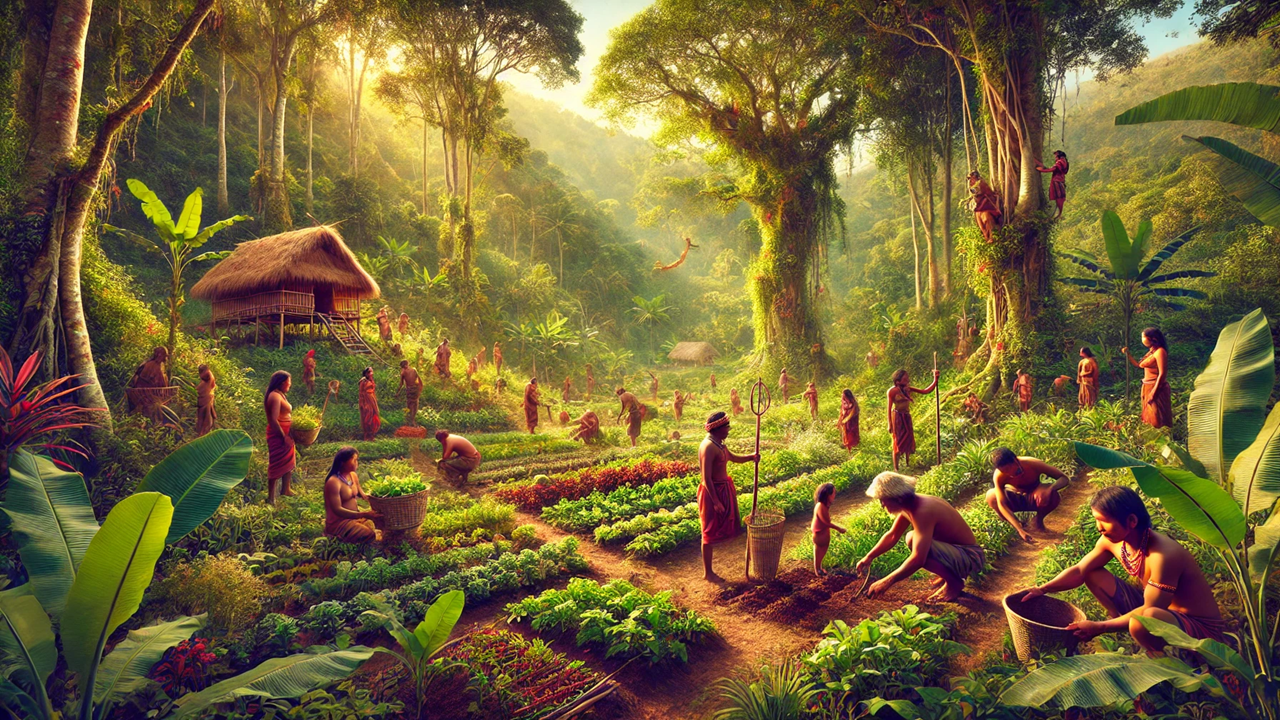Resilient Roots: How Indigenous Peoples Combat Climate Shocks
Indigenous Peoples have shown remarkable resilience in the face of climate change, grounded in their cultural practices and knowledge systems. A World Bank framework highlights the principles, drivers, and enablers that support their resilience, aiming to inform policies that respect their unique contributions.

Indigenous Peoples have long been the unsung heroes of environmental sustainability, quietly stewarding a significant portion of the world's biodiversity. Despite facing centuries of marginalization and being on the front lines of climate change, their resilience continues to shine through. A comprehensive framework developed by the World Bank sheds light on the drivers and enablers that support Indigenous Peoples' resilience, aiming to inform policies that respect their unique identities and invaluable contributions.
Historical Resilience and Rights
Indigenous resilience is not a new phenomenon. It has been forged through centuries of overcoming adversity, from colonization to the ongoing impacts of climate change. Their ability to adapt and persist, deeply rooted in their cultural practices and knowledge systems, is a testament to their strength. A critical aspect of this resilience is the recognition of Indigenous Peoples as rights holders. This recognition is enshrined in international treaties, national constitutions, and legal frameworks. The United Nations Declaration on the Rights of Indigenous Peoples (UNDRIP) emphasizes their right to self-determination and participation in decision-making processes affecting their communities. The World Bank's Environmental and Social Framework (ESF), specifically its standard ESS7, acknowledges the importance of these rights, promoting meaningful consultation and inclusion of Indigenous Peoples in development projects.
Foundational Principles of Resilience
The World Bank's framework highlights six foundational principles that underpin Indigenous resilience: First, Indigenous Peoples have always been resilient, adapting to and overcoming numerous challenges throughout history. Second, they are not mere beneficiaries but active partners in development, with recognized rights that must be respected. Third, their cultural values and spiritual beliefs guide their interactions with the environment, promoting sustainability and collective well-being. Fourth, meaningful engagement and dialogue are essential in ensuring that development processes are legitimate and inclusive. Fifth, Indigenous communities demonstrate a high capacity for adaptation, often blending traditional knowledge with modern practices. Lastly, women play a crucial role in maintaining and transmitting cultural knowledge and enhancing community resilience.
Drivers and Enablers of Indigenous Resilience
The framework identifies four key drivers that support Indigenous resilience: Secure access to land and natural resources is fundamental. Indigenous territories are not just a source of livelihood but also hold cultural and spiritual significance. For instance, African Pastoralists rely on access to traditional livestock corridors to adapt to climate variability. Functioning self-governance and decision-making systems enable communities to manage resources and respond to challenges collectively. Indigenous knowledge systems, including traditional medicines and ecological knowledge, are crucial for adapting to and mitigating the impacts of climate change. Traditional modes of production and economies based on customary laws ensure food security and sustainable livelihoods.
To bolster these drivers, the framework outlines several enablers: Strong legal recognition and protection of Indigenous rights are essential. For example, the recognition of Indigenous territories in Brazil's 1988 Constitution has helped protect these lands from external threats. Ensuring Indigenous communities have access to essential services, infrastructure, and markets is vital for their resilience. Establishing strategic platforms for engagement with external actors, including targeted support for resource mobilization and direct funding, enhances Indigenous Peoples' ability to participate in and benefit from development initiatives.
Building a Resilient Future
The framework developed by the World Bank underscores the importance of understanding and supporting the unique resilience of Indigenous Peoples. By recognizing their rights, respecting their cultural values, and ensuring meaningful engagement, policymakers and development practitioners can help build a more inclusive and resilient future. This framework serves as a global public good, aiming to improve knowledge and capacity to support Indigenous Peoples' resilience in the face of climate change.
- FIRST PUBLISHED IN:
- Devdiscourse
ALSO READ
U.S. Urges Japan to Appoint Humanitarian Task Force Reps Amid Climate Change Concerns
Biologists Track Rare Amazon Dolphins as Climate Change Threatens Species
Rajasthan: CM Bhajan Lal Sharma flags off cyclothon organised to spread awareness on climate change in Jaipur
India's Climate Change Initiatives Under Paris Agreement
The Great Barrier Reef: A Struggle Against Time and Climate Change










